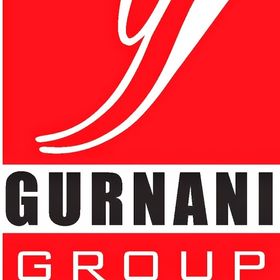
| CIN | Not Available |
|---|---|
| Year Established | Not Available |
| Address | Not Available |
| Company Status | Not Available |
Overall Case Outcomes
Introduction
In the competitive landscape of real estate development, buyers often find themselves navigating a complex web of information when selecting a builder. One such builder, GURNANI INFRADEVELOPERS PRIVATE LIMITED, has made its mark primarily in Rajasthan. However, as consumers, it’s crucial to understand both the successes and challenges faced by builders in the industry. This blog delves into the legal history of GURNANI INFRADEVELOPERS, examining their complaint record, case outcomes, and patterns that may inform your purchasing decisions.
Overview of GURNANI INFRADEVELOPERS PRIVATE LIMITED
GURNANI INFRADEVELOPERS PRIVATE LIMITED has encountered a total of 39 complaints with a near-even split in legal outcomes, winning 21 cases and losing 18. Their primary operational base resides in Rajasthan, an area known for its diverse real estate opportunities ranging from residential to commercial projects.
Legal Case Overview
Cases Lost
An analysis of the 18 cases lost by GURNANI INFRADEVELOPERS reveals a striking …
Cases Lost by Builder (When Defending)
Yearly Trend for these Cases
Common Topics
Analysis of the cases filed against Gurnani InfraDevelopers Private Limited, where the builder lost, reveals a consistent pattern of disputes primarily centered around the builder's failure to comply with the Real Estate (Regulation and Development) Act, 2016, particularly concerning the submission of Quarterly Progress Reports (QPRs) on the RERA web portal.
The cases highlight four common themes: the failure to submit QPRs, penalties imposed for non-compliance, recurring technical issues affecting report submissions, and disputes over the timeliness and accuracy of the QPRs that were submitted. Most of the claims made by the appellants revolved around the builder's inability to furnish the required reports on time, which led to penalties and raised concerns about potential revocation of registration. The builder, on the other hand, consistently claimed to have submitted the reports, often attributing the apparent lack of compliance to technical difficulties.
A striking pattern emerges from these summaries: the …
Cases Won by Builder (When Defending)
Yearly Trend for these Cases
Common Topics
An analysis of the cases filed against the builder, GURNANI INFRADEVELOPERS PRIVATE LIMITED, which the builder won, revealed the following information. The predominant themes in these cases mostly revolve around non-compliance with RERA reporting requirements and penalties associated with project delays.
Several complaints were filed by appellants who claimed that the builder failed to submit the required Quarterly Progress Reports (QPRs) on the RERA web portal. Moreover, there were claims concerning penalties for project delays, with appellants stating potential registration revocation due to these failures. Most of these cases were brought to court due to disagreements over submission timelines and assertions that the builder did not fulfill regulatory requirements. A noticeable pattern emerged where concerns were raised regarding technical issues that purportedly hindered the uploading of QPRs, leading to disputes with buyers and regulatory bodies alike.
The builder successfully defended itself in these cases, often because of insufficient evidence …
Individual case details available for subscribers.
Builder Reviews
No reviews for this builder yet. Be the first one to share your thoughts!
Submit Your Review
Interested in buying from GURNANI INFRADEVELOPERS PRIVATE LIMITED?
Leave your details – our team will call you back within 5 minutes.